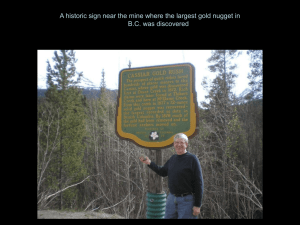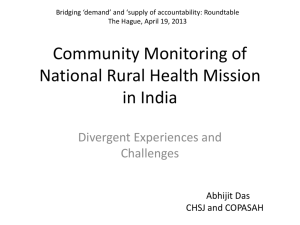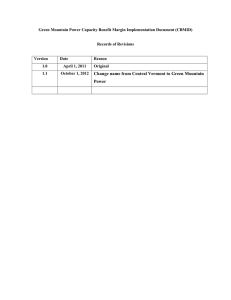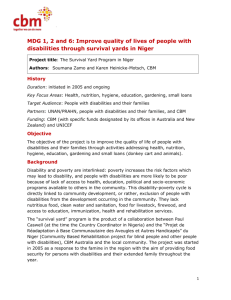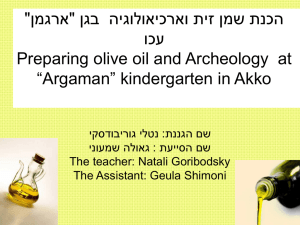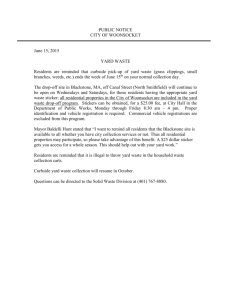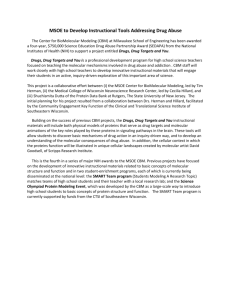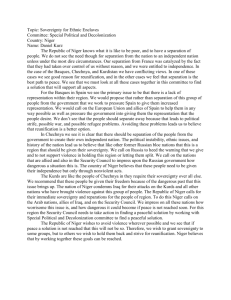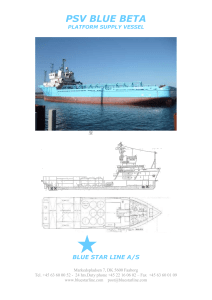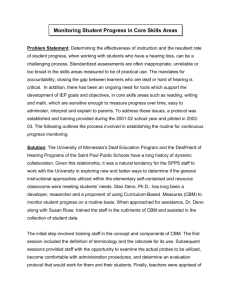Case Study by CBM for hunger consultation
advertisement
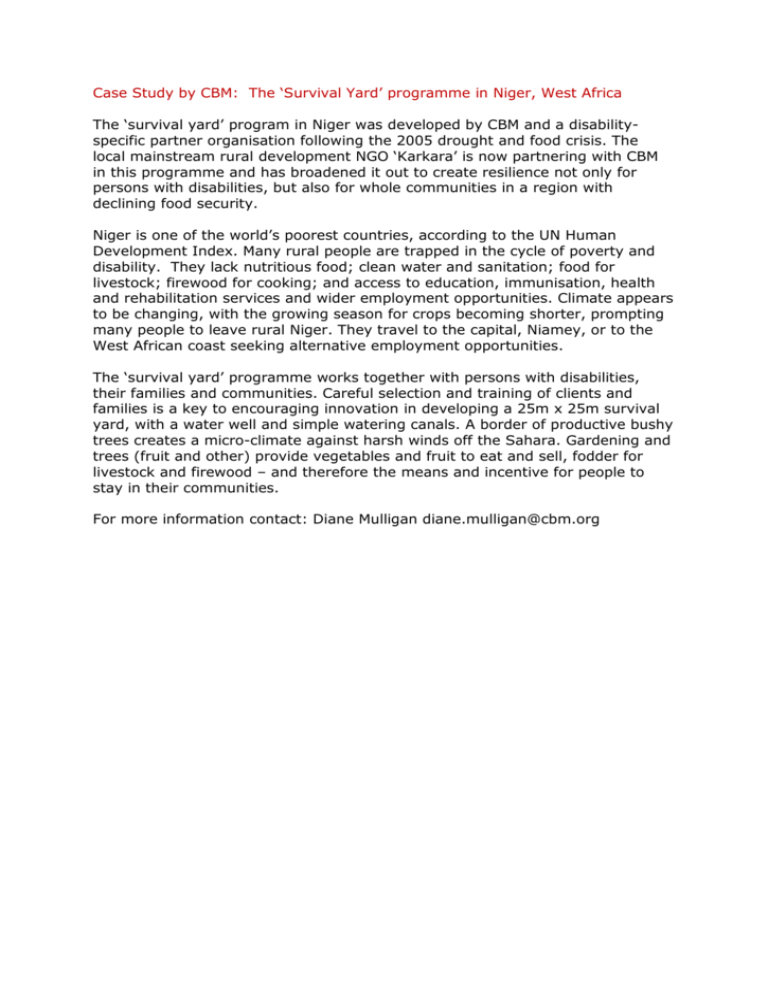
Case Study by CBM: The ‘Survival Yard’ programme in Niger, West Africa The ‘survival yard’ program in Niger was developed by CBM and a disabilityspecific partner organisation following the 2005 drought and food crisis. The local mainstream rural development NGO ‘Karkara’ is now partnering with CBM in this programme and has broadened it out to create resilience not only for persons with disabilities, but also for whole communities in a region with declining food security. Niger is one of the world’s poorest countries, according to the UN Human Development Index. Many rural people are trapped in the cycle of poverty and disability. They lack nutritious food; clean water and sanitation; food for livestock; firewood for cooking; and access to education, immunisation, health and rehabilitation services and wider employment opportunities. Climate appears to be changing, with the growing season for crops becoming shorter, prompting many people to leave rural Niger. They travel to the capital, Niamey, or to the West African coast seeking alternative employment opportunities. The ‘survival yard’ programme works together with persons with disabilities, their families and communities. Careful selection and training of clients and families is a key to encouraging innovation in developing a 25m x 25m survival yard, with a water well and simple watering canals. A border of productive bushy trees creates a micro-climate against harsh winds off the Sahara. Gardening and trees (fruit and other) provide vegetables and fruit to eat and sell, fodder for livestock and firewood – and therefore the means and incentive for people to stay in their communities. For more information contact: Diane Mulligan diane.mulligan@cbm.org
